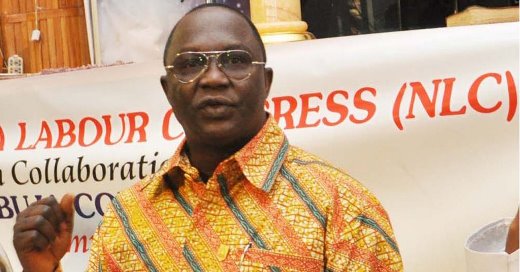This post has already been read 940 times!
The shelving of the planned strike action by the Nigerian Labour Congress and other labour unions on the government’s deregulation policy is already stale but the dust it has generated hasn’t settled.
The core issues for which the Labour Unions had threatened a strike action are largely twofold – the unwholesome increase in the price of petroleum products and the hike in tariff for electricity across the country. The confusion that followed the increase in the price of premium motor spirit at N162 a litre triggered the crisis. This increase in the price of premium motor spirit happened in a week the Federal Government also approved a 300 per cent hike in electricity bills.
The battle for the design of appropriate pricing of petroleum products in Nigeria has been long drawn. Many have opined that unless this issue is addressed, there would not be any meaningful progress in the efficient delivery of these products to the Nigerian public. These issues have wide-ranging implications for the standard of living of the people. The issues include smuggling of products to the neighbouring countries and functioning of the local refineries and the efficient operations of the downstream sector of the oil and gas industry in Nigeria.
Mixed reactions have greeted this development. While some commended the brinksmanship of the labour leaders in averting a national crisis in this era of the economic downturn due to the COVID-19 pandemic, others were disappointed and accused the labour leaders of a sell-out. Those who complimented Labour argued that Labour deserves praise, not condemnations. They asserted that being stakeholders in the Nigeria project, Labour needed to balance their actions to enhance the overall public interest. To this school, strike action at this time would definitely have a devastating effect on the country’s fragile economy and that the workers will equally suffer if the strike was not averted. They thus commended Labour for securing a suspension of the electricity tariff, which can be followed up with other things since negotiation is on-going. On the other hand, this compromise has been largely criticised by many across the country particularly the civil society organisations which suspect a compromise by the leadership of the unions, who many have tagged self-serving who were deemed to have invariably abandoned the public interest and resorted to feathering their own nests. The argument is that given that the whole world is gradually coming out of the lockdown effects of the COVID-19 pandemic and many people have lost their jobs, these increases are unjustified. Some members of the working population have had their salaries and wages slashed with inflation on the increase. In addition, this school argues that the government has increased payments of stamp duties on a tenancy with interest rates on deposits in banks slashed. With this level of impoverishment, they wonder whether it is proper for the government to “add salt to injury” by increasing the price of petroleum products knowing well that the increase has inflationary effects.
In the main, Labour still has the opportunity to protect workers and the general public from undue exploitation on new fuel price. The challenge is for labour to get concrete commitments from the government on how workers’ condition can be improved steadily over the coming months and years. It is hoped that any new concessions from the government would be concrete enough to avert any further civil unrest. There is the need for a design of a workable strategy that would address the needs of the already impoverished Nigerian populace. It is not yet Uhuru, or so it seems.



